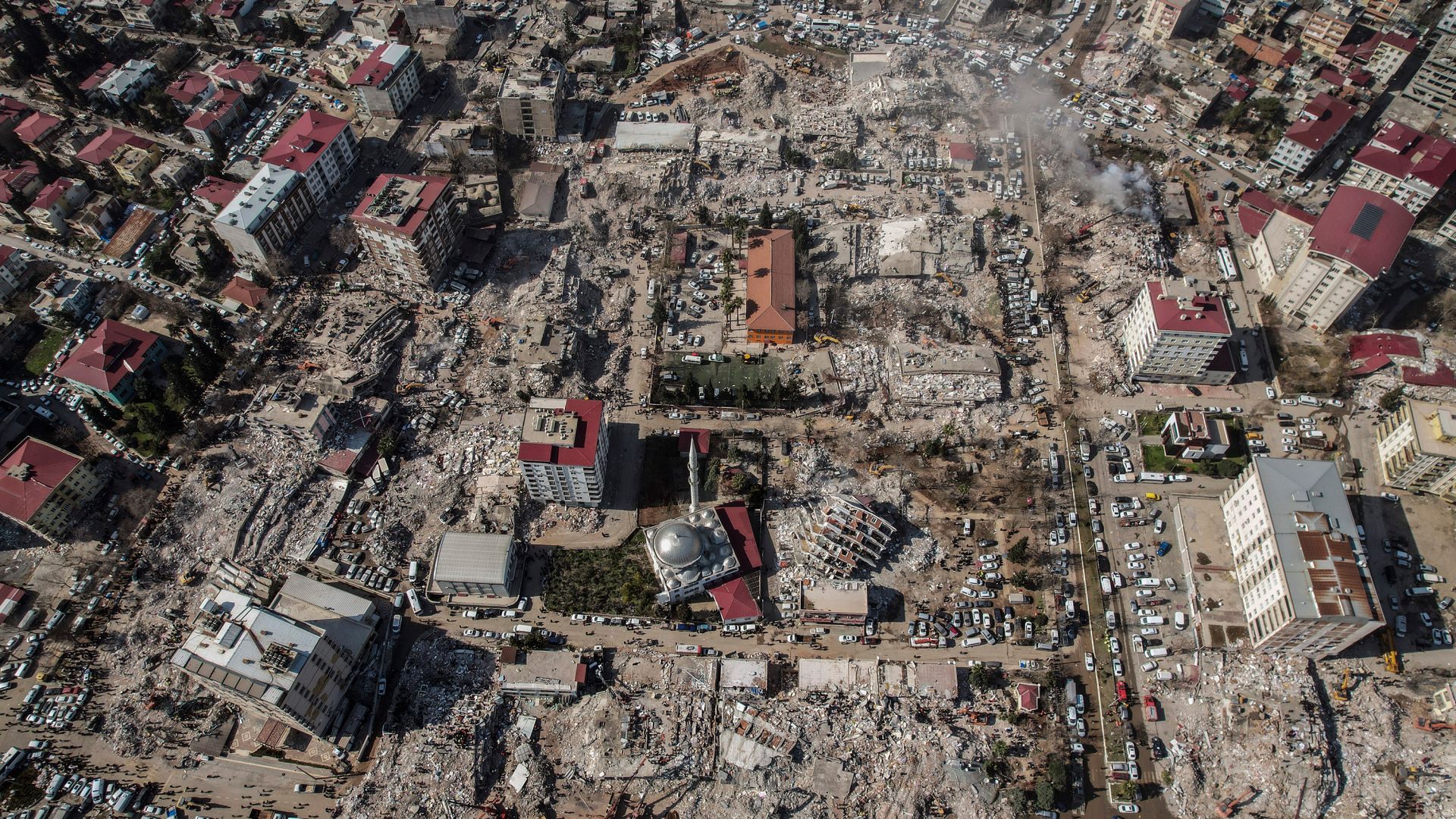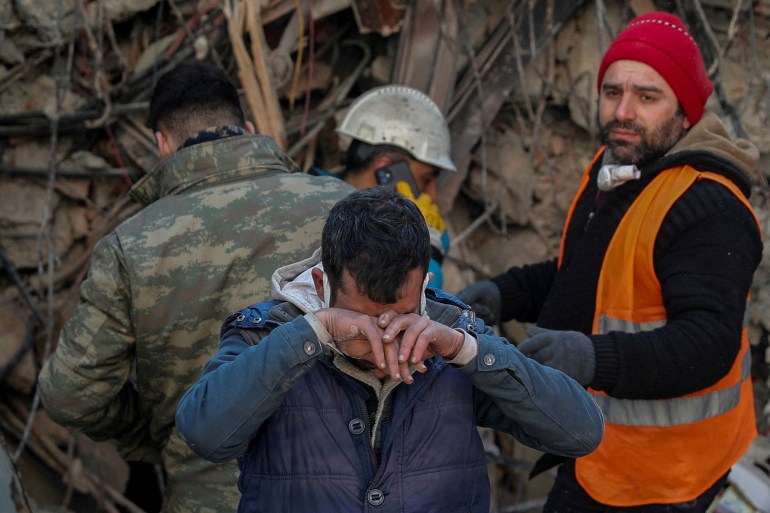Turkey and Syria: Two nations in pain

After nearly 20 hours of driving, we arrived in Kahramanmaras, at a scene beyond description. A truly apocalyptic scale of devastation. Building after building, block after block, had been levelled.
Rescue teams were working frantically to reach people buried in the rubble of that first magnitude 7.8 earthquake on February 6.
I had been awakened just after 4am that day by Al Jazeera's newsdesk to be told that an earthquake had hit southern Turkey, where my family is from, and still lives. Nobody knew at the time how strong it was.
But before I could travel to check on them, our team had to journey to the epicentre of the earthquake, Kahramanmaras.
From time to time, a call would go out for silence when rescuers heard a voice from beneath the fallen buildings. Hundreds of people huddled in on and around the rubble, scared and exhausted but still hoping to hear the voice of their loved ones.
Berrin Izgin’s son and husband were still under the rubble, she told me. She had already lost a child and daughter-in-law and was waiting, hoping to get her son and husband back. Hours later, her son Mehmet was pulled out. But her husband, despite all efforts, remained under the debris that night.
There were dozens of people under the same collapsed block, many still alive, their families waiting anxiously in the freezing cold.
Nearly 6,000 people died and about 1,000 buildings collapsed in Kahramanmaras. Rescue efforts were frantic and families were refusing to leave until their relatives came out from under the rubble. Dead or alive.
Because there was nowhere else, our team slept in our car during freezing nights, huddled in sleeping bags. Days passed as the tragedy unfolded. On the morning of the fourth day, the temperature was still below zero.

Zahide had been near where we parked our car for more than 80 hours, hoping to find her son, daughter-in-law, and grandchild who were under the rubble she was staring at nonstop.
When she saw our camera, she said: "Report on this, so that people know my pain. My dear ones are burning under this rubble."
Next to her, a Syrian family had six relatives in the same collapsed building. They said they fled the civil war and came to Kahramanmaras to begin a new, safer life in 2013. Turkish and Syrian families shared the same pain.
People were trying to cope, relying on aid and sleeping in cars as the aftershocks continued. "God shall save us. We are now refugees," said an elderly Turkish woman, barely able to walk.